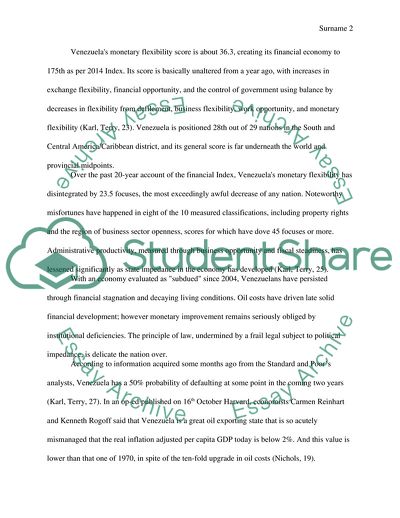Cite this document
(Venezuelan Economy and problems Essay Example | Topics and Well Written Essays - 2000 words, n.d.)
Venezuelan Economy and problems Essay Example | Topics and Well Written Essays - 2000 words. https://studentshare.org/macro-microeconomics/1851568-venezuelan-economy-and-problems
Venezuelan Economy and problems Essay Example | Topics and Well Written Essays - 2000 words. https://studentshare.org/macro-microeconomics/1851568-venezuelan-economy-and-problems
(Venezuelan Economy and Problems Essay Example | Topics and Well Written Essays - 2000 Words)
Venezuelan Economy and Problems Essay Example | Topics and Well Written Essays - 2000 Words. https://studentshare.org/macro-microeconomics/1851568-venezuelan-economy-and-problems.
Venezuelan Economy and Problems Essay Example | Topics and Well Written Essays - 2000 Words. https://studentshare.org/macro-microeconomics/1851568-venezuelan-economy-and-problems.
“Venezuelan Economy and Problems Essay Example | Topics and Well Written Essays - 2000 Words”. https://studentshare.org/macro-microeconomics/1851568-venezuelan-economy-and-problems.


